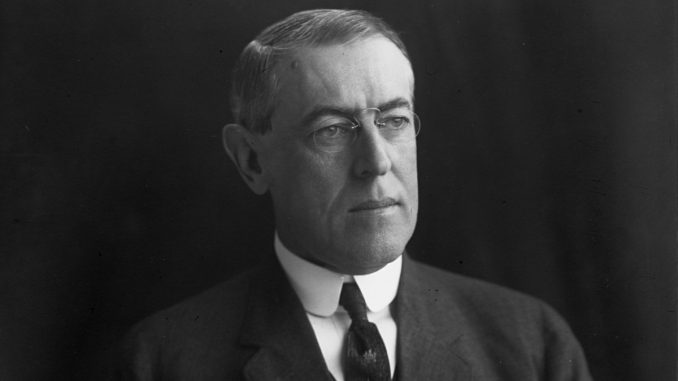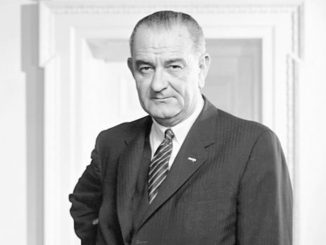

The Fourteen Points speech of President Woodrow Wilson was an address delivered before a joint meeting of Congress on January 8, 1918, during which Wilson outlined his vision for a stable, long-lasting peace in Europe, the Americas and the rest of the world following World War I.
Wilson’s proposal called for the victorious Allies to set unselfish peace terms with the vanquished Central Powers of World War I, including freedom of the seas, the restoration of territories conquered during the war and the right to national self-determination in such contentious regions as the Balkans.
The devastation and carnage of the First World War grimly illustrated to Wilson the unavoidable relationship between international stability and American national security.
At the same time, he sought to placate American isolationists by stating that the world must “be made fit and safe to live in; and particularly that it be made safe for every peace-loving nation which, like our own, wishes to live its own life, determine its own institutions, be assured of justice and fair dealing by the other peoples of the world as against force and selfish aggression.”
What Were the Fourteen Points?
In his speech, Wilson itemized 14 strategies to ensure national security and world peace. Several points addressed specific territorial issues in Europe, but the most significant sections set the tone for postwar American diplomacy and the ideals that would form the backbone of U.S. foreign policy as the nation achieved superpower status in the early 20th century.
Wilson could foresee that international relations would only become more important to American security and global commerce. He advocated equal trade conditions, arms reduction and national sovereignty for former colonies of Europe’s weakening empires.
One of Wilson’s purposes in delivering the Fourteen Points speech was to present a practical alternative to the traditional notion of an international balance of power preserved by alliances among nations—belief in the viability of which had been shattered by World War I—and to the Bolshevik-inspired dreams of world revolution that at the time were gaining ground both within and outside of Russia.
Wilson hoped also to keep a conflict-ridden Russia in the war on the Allied side. This effort met with failure, as the Bolsheviks sought peace with the Central Powers at the end of 1917, shortly after taking power following the Russian Revolution.
In other ways, however, Wilson’s Fourteen Points played an essential role in world politics over the next several years. The speech was translated and distributed to the soldiers and citizens of Germany and Austria-Hungary and contributed to their decision to agree to an armistice in November 1918.
Treaty of Versailles
Like the man himself, Wilson’s Fourteen Points were liberal, democratic and idealistic. He spoke in grand and inspiring terms, but was less certain of the specifics of how his aims would be achieved.
At the Paris Peace Conference, Wilson had to contend with the leaders of the other victorious Allied nations, who disagreed with many of the Fourteen Points and demanded stiff penalties for Germany in the Treaty of Versailles.
Importantly, Wilson urged the establishment of an international governing body of united nations for the purpose of guaranteeing political independence and territorial integrity to great and small countries alike. His idea gave birth to the short-lived League of Nations. The more viable United Nations would come into existence only after the conclusion of another devastating global conflict: World War II.





Be the first to comment